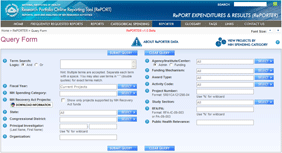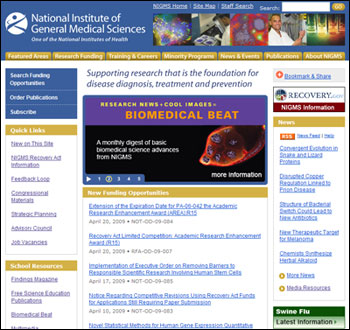 Have you seen the NIGMS image gallery? We’d love to feature your work there.
Have you seen the NIGMS image gallery? We’d love to feature your work there.
The gallery contains photos, illustrations and videos that showcase NIGMS-supported science. It’s a place where teachers, students, journalists and even I go to obtain images that help people understand and appreciate biomedical research.
If you have interesting or striking images or videos created with NIGMS support, please e-mail me! We prefer entries without copyright restrictions (i.e., never published or for which you retain the copyright). Images in the gallery are freely available for educational, news media or other informational purposes.
You might also consider entering the International Science & Engineering Visualization Challenge sponsored by the National Science Foundation and Science. Entries, which are due by September 15, can include photography, illustrations, informational posters and graphics, interactive games and non-interactive media. They can be pedagogical, playful or just plain pretty. Winning submissions will appear in a February 2011 issue of Science and will be featured online by Science and NSF. Let me know if you win, so NIGMS can feature the image, too!
I have judged this competition for the past 2 years and can give you more details if you’re interested.


 As you may recall from an earlier Feedback Loop message, NIGMS hosted its first workshop to help postdocs successfully transition to independent positions. We just posted videos for all the presentations.
As you may recall from an earlier Feedback Loop message, NIGMS hosted its first workshop to help postdocs successfully transition to independent positions. We just posted videos for all the presentations.

